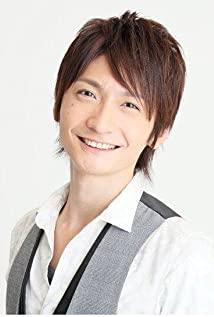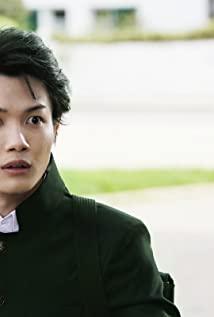By Nick Bradshaw (Sight & Sound)
Translator: csh
The translation was first published in "Iris"
Animation director Makoto Shinkai, 43, has been touted as the heir to Miyazaki's mantle, and between them there are indeed some legitimate points of reference. He creates captivating images reminiscent of Miyazaki's signature style: the contrast between bold, flat foreground figures and mottled, delicate backgrounds—though Miyazaki's backgrounds Very dependent on an artist named Kazuo Oga. However, Makoto Shinkai also has his own style, and he has also experimented with many different character designers in his films.
Both Miyazaki and Shinkai are very concerned about the weather. Whereas Miyazaki typically uses clouds, steam, and wind to denote the spiritual world of nature, Shinkai focuses on the wider meteorology—rain, snow, and firework-like meteors—to reveal emotional spectacles.
Hayao Miyazaki (before 2014's "The Wind Rises") expressed his awe-inspiring worldview through stunning fables and fantasies, and his work ostensibly focused on people of all ages. child. On the other hand, Makoto Shinkai explores the deep thoughts and shyness of the soul, and deals with those young people who are almost grown up. These protagonists, who are high school students, explore their own subjectivity, and through their first love, they recognize the painful adult culture of compromise. However, Makoto Shinkai's "Your Name. has become the first work to rival Miyazaki's hits at the box office, showing that both cartoons have found their way to reach people beyond their target audiences.
Similar to Wong Kar-wai, Xin Haicheng focuses on the distance between people. Five Centimeters Per Second is a melancholy triptych that focuses on a young dreamer and his estranged relationship with two girls. "The Garden of Words" tells the story of a serious middle school student who has an off-campus tryst with an alcoholic young woman during the rainy season. However, "Your Name. " presents a more popular texture, which starts with the soundtrack: the soundtrack for this film is no longer Shinkai's long-term partner Tenmon, nor the "Garden of Words" soundtrack Bai Daisuke, but Japanese heavyweight rock group Radwimps. As Makoto Shinkai puts it, their music adds "speed and freshness". (Miyazaki's collaboration with composer Joe Hisaishi has become a model for animation, while Shinkai is trying to break new ground: "I want something new that doesn't necessarily fit the tradition of Japanese animation creation. ”)
The work also takes a faster narrative pace: it's a time-traveling and body-swapping comedy about two high school students—a girl from the countryside and a boy from the city. It's not just distance that separates them, it's the buzz of buzzwords from a comet. This animated spectacle forms the heart of the plot, and the film returns to this moment twice.
The heroine Mitsuha lives in a fictional town called Ishii, which is located around a lake bay high in the Japanese Alps. There are many ceremonies and traditions here, and the mouth-chewing wine is a representative one, which her grandmother and herself ceremonially brewed - for Mitsuha, it was as embarrassing as her father's public admonition , her father was also the mayor of the town. Perhaps because she wanted to escape to the big city, she woke up one day and found herself in the body of Taki Taki, a high school student in Tokyo, and he was in her - for the next few weeks hiccups have become a habit.
"Yesterday you seemed to be someone else," their friends and family kept repeating. Confusion and fear turn into mischief and adventure, and they exchange bits and pieces of each other's lives in a phone diary. Mitsuha spends Taki's money in elegant cafes in Tokyo, and she uses her femininity to sweetly manage his relationship with Okuji-senpai. Taki worked as a waiter at a high-end Italian restaurant at night, and Okuji-senpai was a beautiful colleague he met at the restaurant.
Taki also learned more about girls—a common joke was that he always started his day by stroking Mitsuha’s breasts—and he began to explore more traditional Japanese landscapes and customs: Mitsuba His grandmother took him to an ancient shrine in an overgrown crater. The grandmother also explained to him the concept of the local straw rope, which represents the thread of time and the connection between people - and an intermediate state between human and "twilight". When the bond between him and Mitsuha breaks, Taki must find his way back to Ishii, through that middle world, and find his soulmate.
Shinkai himself, who grew up in Nagano prefecture high in the Japanese Alps before moving to Tokyo, says he does see both sides of a coin. "Taki is basically me, Mitsuha doesn't exist, but her character is definitely based on my own upbringing. I like Nagano, but I really want to go to Tokyo. My parents used to run a building company, so I was under realistic pressure — I might have to take over the company. But I wanted to do something different, so I left home at 18.”
I mentioned to Makoto Shinkai that the film seems to focus on the minutiae of contemporary teenage urban life (for example, the way the work incorporates smartphone texting into the mise-en-scene is more comfortable than any movie I've seen), he It reminded me: "I'm not actually documenting the current Tokyo. The Tokyo you see in this movie is actually some kind of stereotype, the image of Mitsuha and my youth that I have dreamed of for a long time: yes For me, that's Tokyo. But it's not really - Taki works at a really nice Italian restaurant, and he's going to a really fancy, really cool cafe - no, that's not true. Young in Tokyo Students really don’t go to these places.”
However, Makoto Shinkai is indeed crafted at the technical level of animation. He combines photography and counterpoint processing to provide a documentary-level effect for animated films. “Visually, it’s really realistic, but in reality, it’s the opposite: Tokyo in the animation is really realistic, I visited some locations, and we really wanted to present something that you can see in Tokyo. Taki once said: We never know how long the Tokyo we know will last. I think most Japanese people know this, because it is really prone to natural disasters here, so it is really easy to disappear . So, yes, I want to document this Tokyo and commemorate its beauty.”
He also admits that the vast sky that appears repeatedly in the film belongs to his childhood memories. "I grew up on these beautiful mountains, the sky is so wide, you can look at the clouds all day and you won't get bored," he says, for whom staring at the stars is a romantic yearning: "I still I love looking at the sky, the stars, and the clouds. I think for me, a boy, maybe a girl is like Tokyo: it's really wonderful, beautiful, wonderful, but out of reach. I admire the sky, I admire Tokyo. Yes, some girls are beautiful, but they're not about me. Maybe that's why my characters also love looking up at the sky because they're appreciating something they can't, and it definitely stems from my childhood experience."
"your name. also develops a new imagery: the presentation of dusk and the light effects of magical moments. Not only is Shinkai harnessing their inherent charm, he is also evoking a sense of transition, as if time in transition, or a journey at a crossroads. Paradoxically, when Shinkai presents the key scenes of this moment, he tries to reduce the contrast on the visual level. “For me, the most important thing in creating animation is contrast: sky, earth, people, which is brighter? Animation uses a lot of subtle editing, so you do need contrast to bring out focus. But in that hazy scene , I keep everything neutral: everything is equally bright. Usually I don’t use this technique, so it’s kind of a challenge.”
Likewise, when Shinkai paints cities, he likes the passing trains and sliding doors, which for him symbolize fleeting moments and fleeting connections. Each of his films is about a separate pair: even when a man and a woman come together, he introduces a third, more distant figure for comparison. (In "Your Name.", whenever Mitsuha and Taki are about to get close, he introduces some kind of longing for someone else.)
"When I was a teenager," he said, "I thought there was a mystery in the world, why human emotions are always unequal: I love you, you love me, but it's not always equal, a One person can love more than another person. I'm not just talking about love, but friendship too, nothing is equal: your concerns, or any feelings. I don't have an answer yet, but I've been thinking It. Why is that? So, I'm trying to deal with that contrast in my films, trying to find the answer to this question, and the mystery of the whole world."
View more about Your Name. reviews










